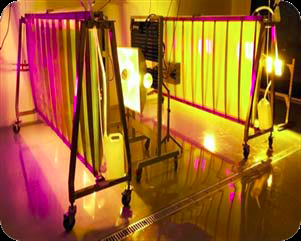Microalgae – an emerging biobased industry in Norway
Several research organizations are increasingly active in the field and the first industries have started production
The production and application of microalgae is gaining interest and momentum worldwide. In Norway, microalgae business is still small and in an initial phase, but competence and knowledge levels are largely matching the developments in other countries.
In this initial phase, it is important to gather and exchange knowledge and competence, and find possibilities for collaborations between industries and R&D organizations to accelerate the development of the microalgae sector in Norway.? Therefore, in June 2014, the Industrial Biotech Network Norway (IBNN) established the special interest group SIG Microalgae, in collaboration with Uni Research. The SIG’s objective is to strengthen science base and to increase the value creation of the microalgae related industry.
Since then, several Norwegian universities and R&D-organizations, as well as industries, contribute to this SIG. During this period, we witnessed steady developments regarding production and applications at the SIG’s industrial partners MicroA, Sigtuna Innovation (AlgaVida) and Alltech Norway (Produs Aqua). Interesting is also the project of the University of Tromsø and ferrosilicon producer Finnfjord to produce microalgae using CO2 emissions and residual heat from the ferrosilicon production process. The universities of Nordland, Trondheim and Stavanger, as well as the research organizations NIBIO (Bioforsk), Uni Research, Sintef and Nofima have also their own R&D programs, international projects and collaborations.
 Challenging Economics
Challenging Economics
Microalgae are produced by either autotroph (use of light) or heterotroph (fermentation) production methods. The choice of microalgae type, or strains, determines largely production parameters, yields and products. The scale of operation and the energy costs for? light and drying are major and still challenging cost price factors for the products. However, process operations and light technology are increasingly improving. Additionally, high-added value products for amongst others food and feed markets are promising applications. In addition, bioremediation and the drive to reduce CO2-emissions from industry stimulate the development of microalgae production processes on a larger or even industrial scale.
At present, total production in Norway is lower than 100 tons/year, while the worldwide production of microalgae is estimated at about 25,000 tons/year, comprising of different types of microalgae for different applications.
SIG MicroAlgae workshop in Oslo February 4th, 2016
In connection with Oslo Science Park’s ‘Open House’, you have the opportunity to meet members of the Norwegian SIG Microalgae. There will be a 15 minutes Microalgae pitching session, an open Microalgae workshop and an exhibition and visit to Norway’s largest algae collection at NIVA-The Norwegian Institute for Water Research.
You will be offered and excellent opportunity to listen to and meet with your colleagues regarding microalgae strains, research and development, production and production plans, and applications. The SIG Microalgae workshop is organized by IBNN in collaboration with NIVA-CCA and SINTEF (In Norwegian language). Please, see the program draft here.
Source: IBNN, press release, 2016-01-12.
